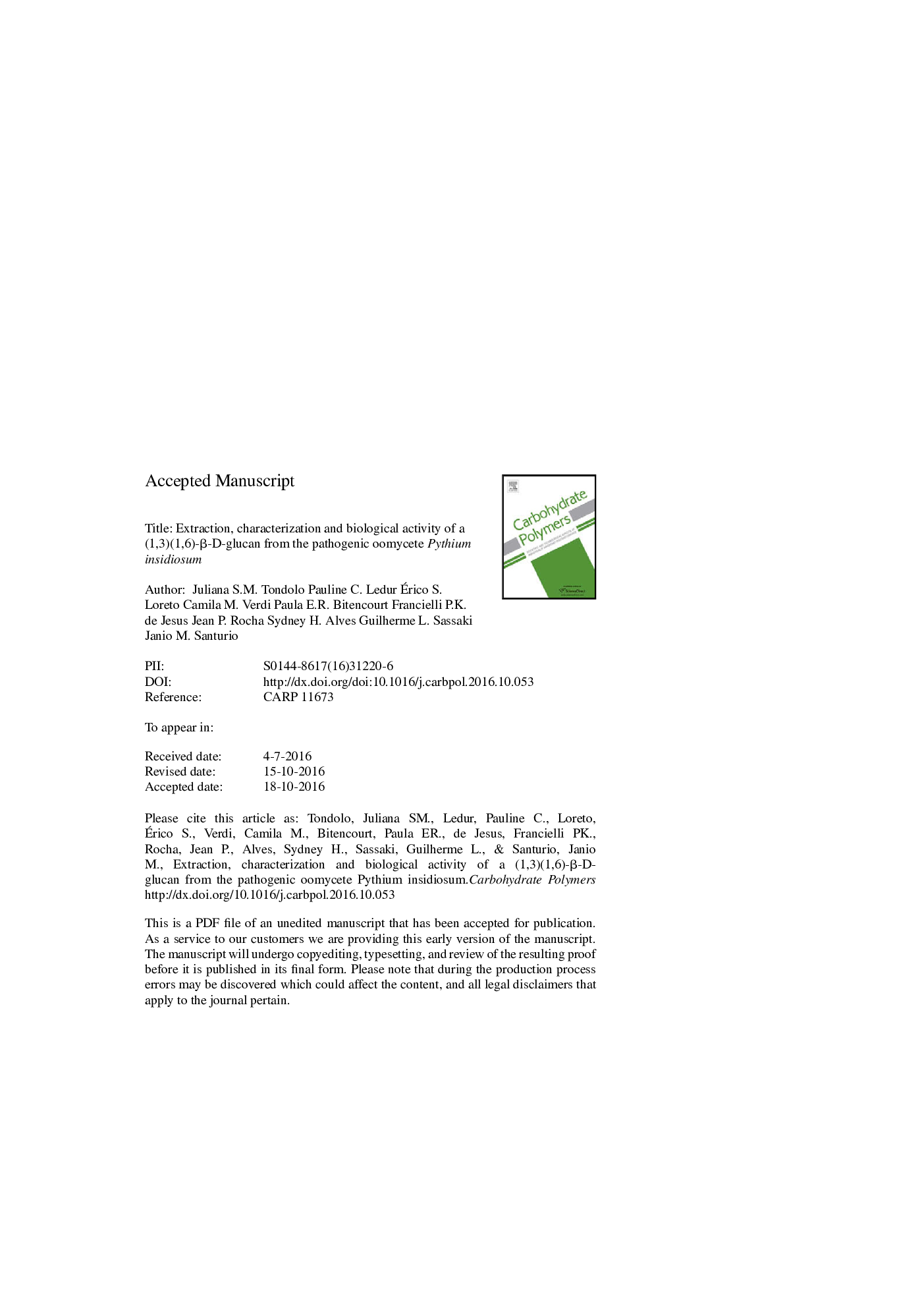| Article ID | Journal | Published Year | Pages | File Type |
|---|---|---|---|---|
| 5157872 | Carbohydrate Polymers | 2017 | 30 Pages |
Abstract
Pythiosis is a life-threatening infectious disease caused by the pathogenic oomycete Pythium insidiosum. This study is the first to evaluate the P. insidiosum glucan content and its biological activities. The enzymatic quantification of the glucans in P. insidiosum mycelia showed that the β-glucan content was 18.99% ± 3.59. The cell wall polysaccharide extract consisted of â¼81.7% carbohydrates (exclusively glucose) and â¼18.3% residual amino acids and peptides. The results from monosaccharide composition, methylation and 1D/2D NMR spectroscopy analyses indicated the presence of a highly branched (1,3)(1,6)-β-d-glucan, with (1,6)-β-d-glucopyranosil side-branching unit on average every 1-2 repeat units. In vitro, the β-d-glucan extract could significantly promote spleen lymphocyte proliferation in human, equine and mouse cell cultures. BALB/c mice that were subcutaneously pre-immunized with three doses of 0.5, 2.5 and 5.0 mg of β-glucan/mouse, showed a significant increase in IL-2, IL-6, IL-10, TNF-α and IL-17A production compared to non-immunized mice. These results suggested that β-d-glucan extract induces significant and specific Th17 cellular immune response and provided the theoretical basis for further experiments.
Keywords
Related Topics
Physical Sciences and Engineering
Chemistry
Organic Chemistry
Authors
Juliana S.M. Tondolo, Pauline C. Ledur, Ãrico S. Loreto, Camila M. Verdi, Paula E.R. Bitencourt, Francielli P.K. de Jesus, Jean P. Rocha, Sydney H. Alves, Guilherme L. Sassaki, Janio M. Santurio,
